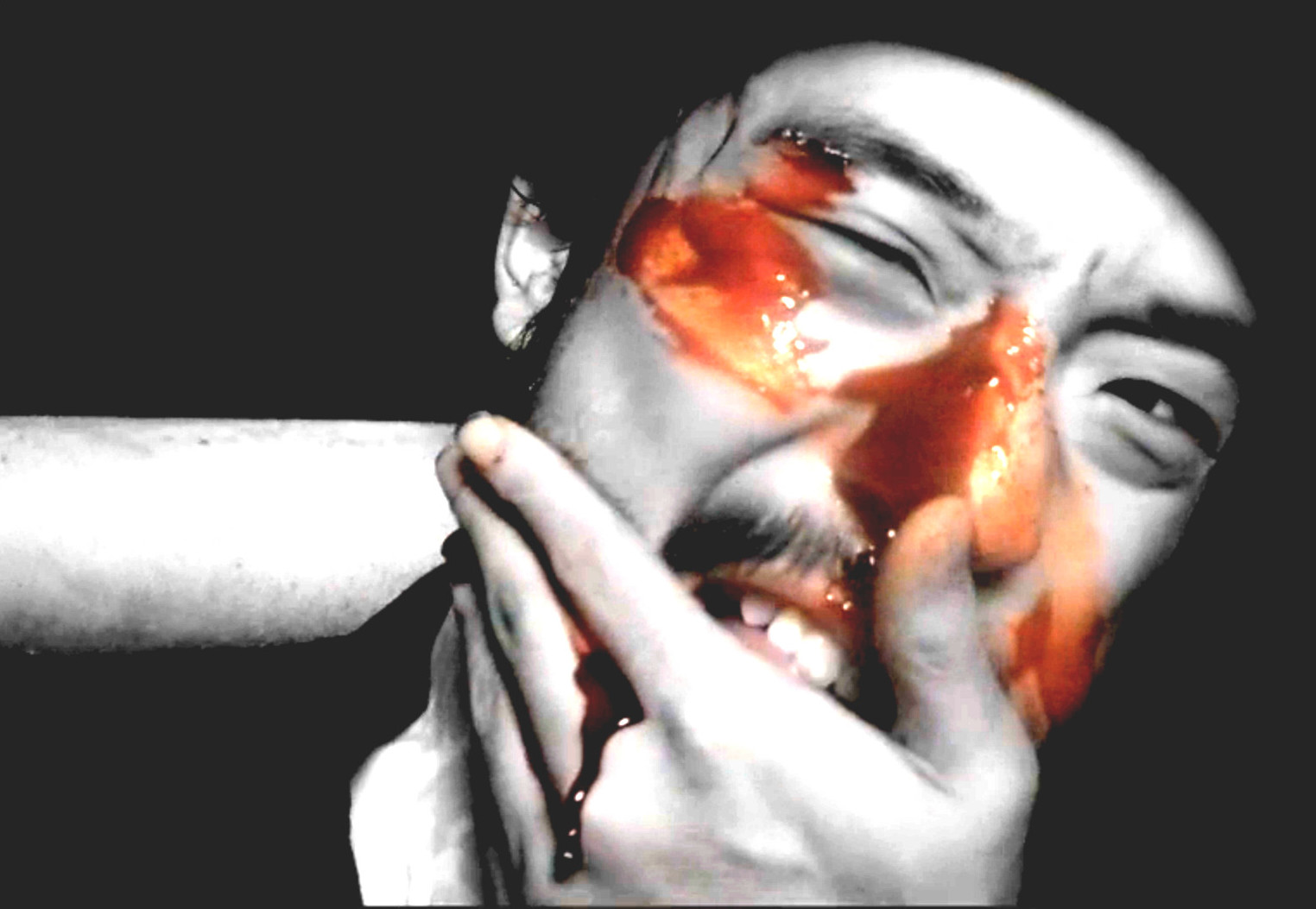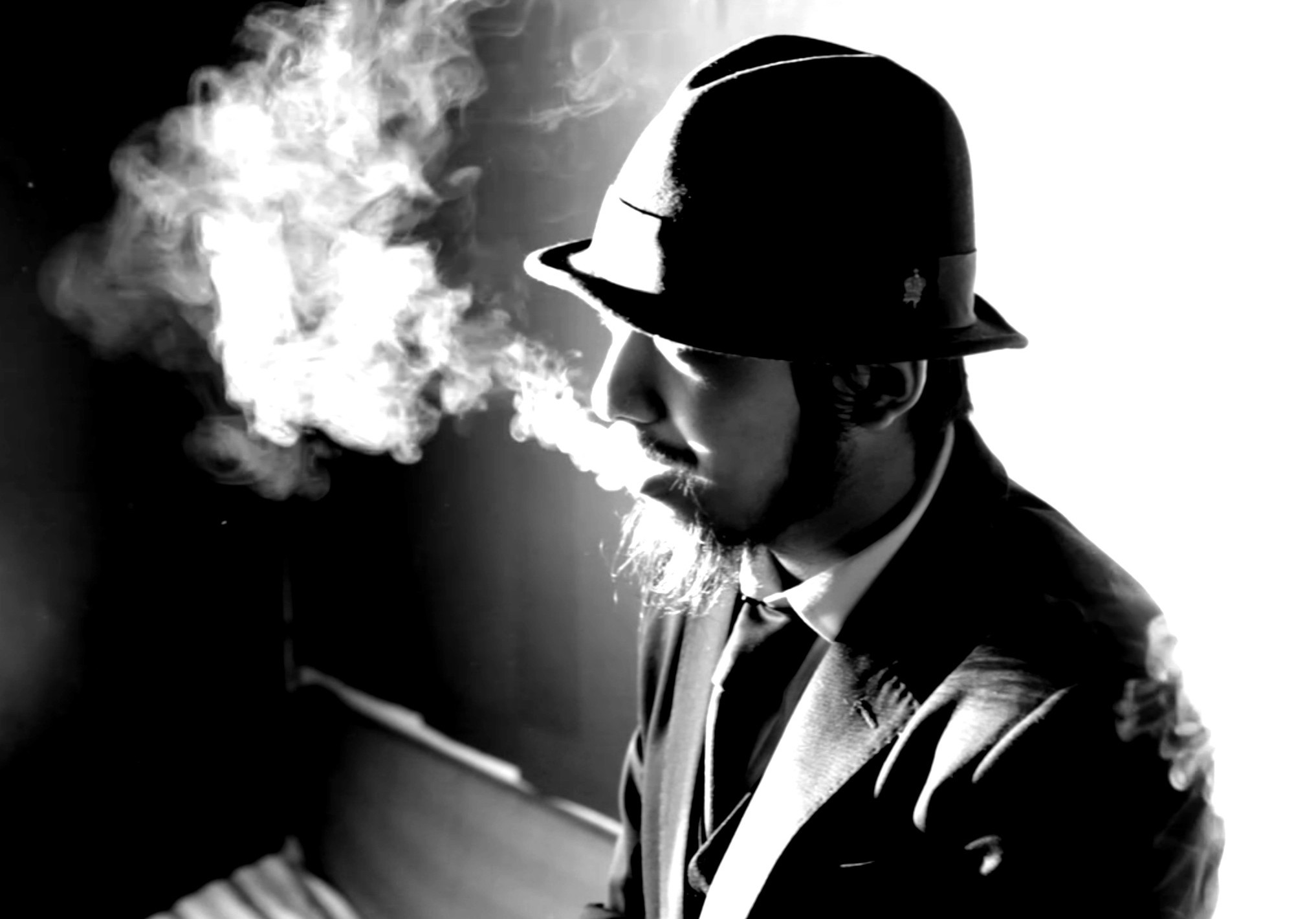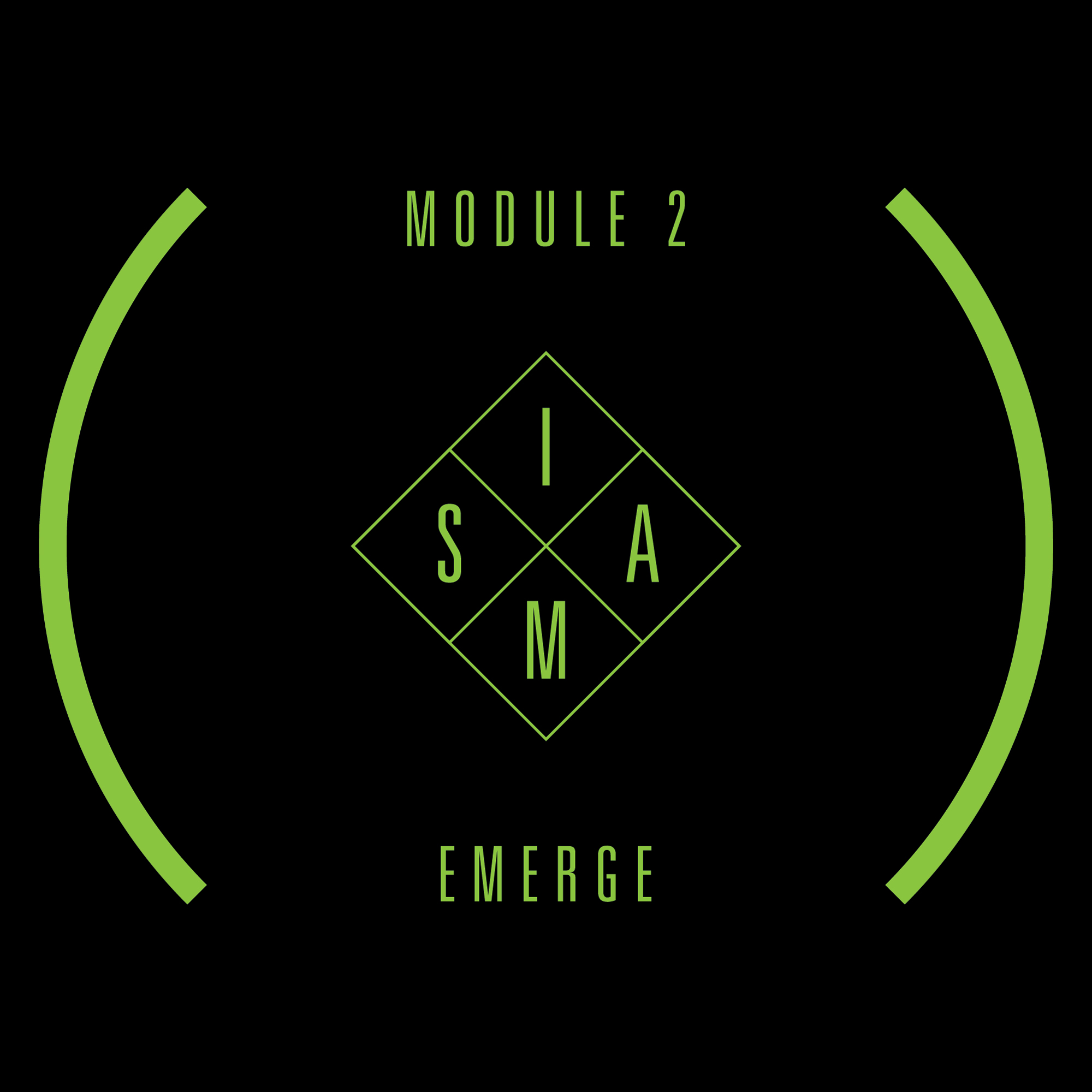采访:SABOT Interview
By Josh, 2012年 11月 2日
《 看中文采访 》
[+] 豆瓣页面 douban event page
SABOT may have invented the DIY world tour. The duo, composed of bassist Christopher Rankin and drummer Hilary Binder, originally formed in San Francisco in 1988 as a spinoff from a punk trio called Forethought. Soon after, they moved to a small town in the Czech Republic. From this freshly post-revolution home base, Sabot embarked on a 20+ year (and counting) career of constant touring, self-releasing, and building global relationships founded on a passion for writing, performing, and sharing music. One of their more remarkable ventures was the 1999 overland Silk Road Tour, in which they set off from Czech and traveled across Central Asia by road and rail. By the time they hit Beijing, their reputation had preceded them — in large part because influential music writer Yan Jun booked their Lanzhou gig. In Beijing they collaborated with some of the leading lights of the rock’n’roll avant-garde of the time, including Zuoxiao Zuzhou of NO and Zhu Xiaolong of Tongue.
Now SABOT is returning to China for a series of concerts and screenings of their just-finished documentary covering the 1999 tour. If you’re in Beijing you can catch the WORLD PREMIERE of the documentary on Tuesday, November 6 at XP. The following night, come back for a special performance by SABOT with support from The Last Three Minutes — also at XP.
And read on for an exclusive interview with Chris and Hilary about their longevity, band philosophy, and the forces that keep their fires burning:
Sabot – “Crime Scene Return” (from “Further Conversations“, 2008)
pangbianr: Sabot originally formed in 1988, when you were living in San Francisco. Not too long after that, you moved to Czech and have been posted up there ever since. What prompted the move?
Sabot: We were running an independent theater/arts space in San Francisco at the time we started touring with Sabot in Europe. During the first tour we discovered many independent music networks that were vibrant, yet localized. It was clear that all these networks could benefit from cooperation. We were attracted to being part of developing a space to assist in this process.
pbr: What drew you to Czech?
Sabot: All of Central/Eastern Europe was attractive to us in the early 90’s because the freshness of the revolutions seemed like an exciting atmosphere of which to be a part. We were lucky enough during our second European tour to meet and befriend a Czechoslovak band from north Bohemia whose members quickly endeared us to the country.



CESTA non-profit cultural exchange station, run by Sabot in Tábor, Czech Republic
pbr: What’s the music scene there like?
Sabot: Active, if you mean the alternative or independent scene. There are many small labels, and bands of all genres. Clubs abound, too, but money is scarce, as it has always been.
pbr: Sabot toured China (and other countries along the Silk Road) in 1999. This was one of the earliest – if not the first – China tours by a foreign band. How did this Silk Road Tour come together?
Sabot: We initially thought of an overland tour to China from Czech because it would bring us to new countries and present a healthy challenge. As we developed the idea for the tour, we decided to engage with artist and musicians in each country on the tour to develop international, interdisciplinary artistic collaborations, similar to the ones we were curating at our international arts center CESTA in Czech. The Silk Road (in reverse) presented an additional interest as it is such an ancient trans-continental route, yet rarely used in the Euro-Asian direction.
pbr: Where all did you play in China?
Sabot: Kashgar, Urumqi, Lanzhou, Xi’an, Beijing, Shanghai.

Sabot performing at Lanzhou’s Rolling Stone Club in 1999, with an introduction from Yan Jun
pbr: Can you share some impressions/memories/standout moments from the tour?
Sabot: Our strongest memories of China are all about food. We still tell stories of not only what we ate, but also how. Of course, particularly in West China there were no independent music scenes to speak of, so were struck by the enthusiasm shown, and risks taken, by all the people who helped us and/or performed with us. By the time we arrived in Beijing, we were also impressed by the efficacy of the word-of-mouth communication network, which provided a large group of artists and musicians for us to work with there, all friends and family of people we had met along the way.
pbr: One of your recent releases is called “240 Months”. It’s a book documenting your 20-year anniversary as a band. I find the title interesting for two reasons: one, it’s quite unusual for a band to last so long. Two, calling it “240 Months” as opposed to “20 Years” suggest a more intimate scale, the “month” being a time unit much more suited to a band that tours as rabidly and broadly as you do. Your longevity and tour schedule reminds me of another duo, Vialka, who have also toured China and other areas of southeast Asia extensively.
Sabot: Our first book was called 120 Months, and celebrated (obviously) our ten-year anniversary. The inspiration for that title was actually a sarcastic reference to the old MTV show, 120 Minutes, allegedly devoted to “alternative” music. We wanted to emphasize how wrong it is to presume such absurd limits. By the time we came around to 240 Months, we simply wanted to continue the barb.
pbr: Can you talk a bit about your philosophy as a band?
Sabot: Perhaps the philosophy of Sabot is best described by the word sabot itself. As you may know, sabot is a French word meaning “wooden shoe.” Etymologically, sabotage is a word coined by French journalists describing the act in which sabots were the tool of choice at the dawn of the industrial age for early protesters who, fed up with the lousy working conditions at the new factories, tossed their sabots into the machines and brought them to a grinding halt. Metaphorically, we feel our approach to music, and our approach to booking and touring, to be sabots in the commercial music machine.
pbr: What are the forces driving you?
Chris:
-The constant inspiration I get from repeatedly finding inspired groups of musicians and organizers all over the world who are enthusiastic about continuing their work regardless of its commercial significance.
-My continued enthusiasm about being a performer and composer.
-The thrill of presenting my work to a variety of different people.
Hilary:
– Having the process of composing and performing to use to convert anger into beauty, frustration into relief, thoughts into messages.
– The opportunity to meet the people around the world who have the energy and inspiration to work with independence and autonomy.
– The chance to find people in any community with whom I can share at least music.
– The chance to see as much of the world for myself as I can.
pbr: What are your influences?
Sabot: Having played music for such a long time, it is impossible to identify specific musical influences any longer. That said, we both have very diverse music tastes and continue to actively listen and seek out new music both on and off tour.
pbr: What role does music – practicing, composing, recording, touring – play in your life?
Sabot: Actually, the role of music in our lives has less impact than the role of our lives in our music. Making music is very much like speaking a language. It is rather a tool to express life’s experiences, rather than a catalyst to effect life events.
pbr: To those of us who weren’t around in ’99: what can we expect from Sabot’s live show?
Sabot: High volume, high energy, emotional passages, confounding arrangements, humorous stage antics and an unforgettable experience.
Sabot will premiere their documentary “Silk Road Tour to China 1999” on Tuesday, November 6 at XP. On Wednesday, November 7, Sabot will give a special performance at XP, with an opening set from The Last Three Minutes. Below watch a trailer for their documentary and stream some of their music:
Sabot – “Right There” (from “Pam Kray“, 1991)
Sabot – “Accidental e.s.p.” (from “Vice Versa“, 1994)
Sabot – “Dead Line” (from “D.I.O.“, 2005)
《 read English interview 》
[+] 豆瓣页面
中文编译Lulu Chow
SABOT乐队似乎可以被认为是环球巡演的最初探索者之一。这个二人乐队——贝斯手Christopher Rankin与鼓手Hilary Binder——最早于1988年在美国旧金山组建。不久之后,他们移居捷克共和国。以这个苏联解体之后独立的新共和国为起始,他们开始了一个长达二十多年的伟业,持之以恒的环球巡演,自主发行专辑,并坚持共享他们的音乐。他们最卓越的巡演之一便是他们在1999年经陆路来到中国。他们从捷克出发,乘坐火车和汽车抵达中国大陆。在他们来北京之前,就已经在大陆音乐圈传遍了——知名音乐作家颜峻早就在兰州安排了他们的演出。在北京,他们跟当时最活跃的前卫摇滚家合作,包括NO的左小祖咒与舌头的朱小龙。
现在SABOT要在13年之后重回中国了,并放映他们刚发行的纪录片——《1999年丝路巡演到中国》。如果你在北京,可以在11月6日周二到XP看纪录片和他们和朋友们的即兴演出。第二天(11月7日周三)是他们的专场,暖场乐队是最后三分钟 —— 也在XP。
下面是我们为大家献上的独家采访,关于他们历久弥新的音乐旅程,丰满的乐队哲学与深刻的精神内核:
Sabot – “回到犯罪现场” (2008年)
旁边儿: Sabot 于1988年组建,那时你们还住在美国旧金山。之后你们就搬到捷克去了,当时为什么想要去捷克?
Sabot: 我们最早在旧金山办过一个独立剧场/艺术空间,同时期我们开始了欧洲巡演的旅程。第一次巡演的时候,我们发现欧洲当地有好多活泼有趣的独立音乐场地和运作系统。毋庸置疑,这一切都可以为我所用。当时就很想在捷克开一个空间,成为这个庞大的系统中的一份子。
旁边儿: 为什么你们选择去捷克?
Sabot: 90年代初我们被所有的中/东欧国家所吸引,因为革命的原因,城市的肌理和环境很带劲。第二次欧洲巡演的时候我们很幸运地认识一个来自捷克北波希米亚的乐队。乐队成员带给我们的震撼,瞬间点燃了我们对捷克的爱。



Sabot 创始的CESTA非利润文化的交流中心
旁边儿: 捷克的地下音乐圈怎么样?
Sabot: 如果你是讲’异’或较独立的圈,可以说是相当活跃。有好多小音乐厂牌,有各种风格的乐队,演出场地也比较丰富,但是钱还有点少,一直是这样。
旁边儿: Sabot 1999 来中国巡演,而且你们从捷克经陆路到北京。那个 ‘丝路巡演’ 怎么安排的?
Sabot: 最初我们觉得从捷克到中国,就是一次艰难的陆路旅程,是探索未知文化的旅程,对我们也是一次空前的挑战。我们在巡演中总会有层出不穷的想法,我们想要跟每个国家的艺术家和音乐家交流,想要发展国际间的跨学科合作计划。当时我们在捷克做的CESTA,就是这种跨学科艺术空间。我们当然觉得丝绸之路本身也很有意思,古老的跨洲行程,当时来看,能够横穿亚欧大陆就是一个壮举。
旁边儿: 你们巡演到了中国的哪些地方?
Sabot: 喀什,乌鲁木齐,兰州,西安,北京,上海。

Sabot在兰州滚石酒吧演出, 1999(颜峻介绍乐队)
旁边儿: 可以说说巡演过程中印象深刻的事吗?
Sabot: 我们对中国最大的记忆就是关于吃。今天还跟朋友们说起我们在中国吃了什么东西,怎么吃之类。虽然在中国西部没有什么独立音乐圈,我们看到更多的是人们对我们热忱的帮助,愿意承担巨大风险来安排我们的演出,这些都给我们留下深刻的印象。我们到北京的时候,我们也很惊讶地发现,是以这样一种口口相传的方式,让我们认识了好多艺术家和音乐家,并有机会与他们合作。这些人就是我们在中国认识的朋友和家人。
旁边儿: 你们最近出版了 《240个月》。是一本关于你们乐队二十周年的纪念册。我觉得这个标题有点意思,首先一个二十岁的乐队比较罕见,其次我觉得你们叫这本书 ‘240个月’ 要比 ’20年’ 更亲切紧密。一个月就是一个乐队巡演的常规巡演的时间,尤其你们是一个永远在路上的乐队。Sabot的漫长经历和毫无缝隙的巡演时间表让我想起了另外一个二人乐队,Vialka。他们也在中国和东南亚洲广泛巡演。
Sabot: 我们做的第一本书叫 ‘120个月’,在我们十周年的时候。那个标题是个讽刺,灵感来自当时的MTV电视剧叫 ‘120 Minutes’,里面有关于 ‘另类’ 音乐一说。我们当时用这个标题就想强调那种MTV电视剧荒谬的分类范围。到了240个月,我们还是继续这个矛头。
旁边儿: 乐队的哲学是什么?
Sabot: Sabot的哲学,用最恰当的描述就是 ‘sabot’ 这个字。’Sabot’ 是一个法语字,意思是 ‘屟’ (木的鞋)。’Sabotage’ 这个字 (‘破坏’) 词源是sabot。在工业时代,法国的记者发明这个字 ‘sabotage’ 是描述一种工人阶级抗议集会:当时有些法国人受够了可怕的高压工作时间,他们把刚制作的鞋子丢到机器里, 让机器停止运作,停止生产。打个比方,自己觉得我们做音乐的想法,还有我们我们安排演出和国际巡演的做法,都和这个 ‘sabots’ 一样,把我们自己的音乐、自己的理念投掷进这个庞大的商业音乐机器里。
旁边儿: 什么力量在驱使你们?
Chris:
– 找到世界各地的音乐家和组织者,收集他们的灵感,继续他们的作品,无论有没有商业意义。
– 有我继续作为一个音乐家,作曲家的热情。
– 把我的音乐奉献给各种各样的人群。
Hilary:
– 用作曲和演出音乐作为一种手段———变愤怒为优雅,变挫折为慰藉,变思想为信息。
– 抓住一切机会,认识世界各地有灵感和能量,同时想创建独立自主的工作环境的人们。
– 抓住一切机会,在与人共享音乐。
– 抓住一切机会,看到尽可能多的世界。
旁边儿: 你们自身受到哪些音乐作品的影响?
Sabot: 因为我们玩音乐的时间太长了,所以现在不能断定具体的影响。无论如何,我们都喜欢各种各样的音乐。现在我们还积极地聆听和寻求新音乐,无论在巡演中还是在家里。
旁边儿: 对那些在99年不在现场,但依旧期待看到你们的人,可不可以对你们的现场做个简短的介绍?
Sabot: 大音量,大能量,情绪化的片段,扑朔迷离的编曲,诙谐的舞台滑稽动作,是一个难忘的经历。
Sabot 11月6日周二在XP放映他们的纪录片。11月7日周三他们在XP演出,暖场乐队是最后三分钟。下面可以看纪录片的预告片和试听他们的音乐:
Sabot – “就在那里” (1991年)
Sabot – “偶然的超感知觉” (1994年)
Sabot – “死线” (2005年)








